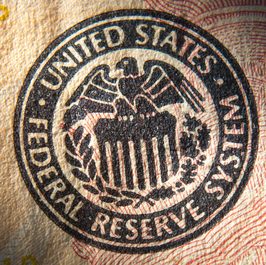The Federal Reserve wants to fine Peter Little, former Barclays head of forex trading, and permanently ban him from banking. According to a press release from the Fed:
The Federal Reserve Board on Friday announced that it is seeking to permanently bar Peter Little, the former head of the foreign exchange (FX) spot desk at Barclays Bank PLC in New York from employment in the banking industry and to impose a $487,500 fine on him.
Little is alleged to have engaged in unsafe and unsound practices by using electronic chat rooms to coordinate with traders at competitor banks to influence FX pricing benchmarks and by engaging in manipulative trading. Little is also alleged to have failed to adequately supervise subordinate traders at Barclays who coordinated with and disclosed confidential information to competitors on Little’s behalf.
The practices and breaches relate to manipulative and collusive trading in the foreign exchange (‘FX’) spot market, including coordinating with competitors to manipulate FX currency benchmarks, and failing to supervise other traders who: 1) coordinated with competitors to manipulate FX currency benchmarks; 2) engaged in trading practices detrimental to clients; and 3) improperly disclosed confidential proprietary and client information to competitors. In connection with the misconduct described herein, Little received a financial gain or other benefit and Barclays suffered financial loss or other damage.
The complaint continued:
While employed at Barclays, Little participated in electronic chat rooms with FX traders at competitor banks. In addition, Little was aware that other FX traders at Barclays, including the traders that he supervised, participated in chat rooms with traders at competitor banks. As set forth below, Little coordinated trading with competitors to attempt to influence or manipulate benchmark currency rates (referred to as “fixes” or “fix rates”) for his own benefit, or for the benefit of the competitors who participated in chat rooms with Barclays traders, by using information obtained from other Barclays traders, who communicated with competitors on Little’s behalf. Little also used his own electronic chat room communications to coordinate with traders at competitor banks.
Fix rates are set throughout the trading day and are used to establish the relative values of two different currencies (such as EUR/USD). The most common fix rates are those published by the European Central Bank (“ECB”) and the World Markets Company plc/Reuters (“WM/R”). During the relevant period, the ECB fix was calculated by taking a snapshot of the average buying and selling rates of various currencies against the euro at exactly 1:15 p.m. London time (8:15 a.m. in New York). The WM/R benchmark fix rate was calculated based on a mid-rate calculated from snapshots of trade and order rates taken over a one-minute window on the hour, with the 4:00 p.m. London time (11:00 a.m. in New York) fix being the most heavily traded WM/R benchmark. Thus, both the ECB and WM/R fix rates could be affected by FX spot trading during or around the period when the fix rate is calculated
According to the Fed, Little was a member of the so-called “Cartel”, a group of traders who manipulated the forex market during the forex scandal which lasted from 2010 to 2013.
This is what the BBC had to say about the Cartel’s activities when it reported the story in 2015:
Because the fix was based on actual transactions over a short period of time, the potential existed for market players to get together and place orders during the 60-second window.
If they were big enough, they could affect the benchmark calculation and create profit opportunities for their firms.
Last November, regulators said that some forex traders at five of the biggest banks had been doing just that for several years. They concluded that through online chat rooms with exotic names such as The Bandits Club, The Cartel and The Mafia, traders colluded to place aggressive ‘buy’ or ‘sell’ orders – known in the business as ‘banging the close’- in order to distort the fix.
The Barclay’s media relations department declined to provide a comment when reached by email.


 The Federal Reserve Board on Friday announced that it is seeking to permanently bar Peter Little, the former head of the foreign exchange (FX) spot desk at Barclays Bank PLC in New York from employment in the banking industry and to impose a $487,500 fine on him.
The Federal Reserve Board on Friday announced that it is seeking to permanently bar Peter Little, the former head of the foreign exchange (FX) spot desk at Barclays Bank PLC in New York from employment in the banking industry and to impose a $487,500 fine on him.





